What’s going on with eggs and why Australia has empty shelves
You may have noticed some empty supermarket shelves at the egg fridge and egg prices have spiked too – find out why there are egg shortages and how they affect Aussie households and businesses
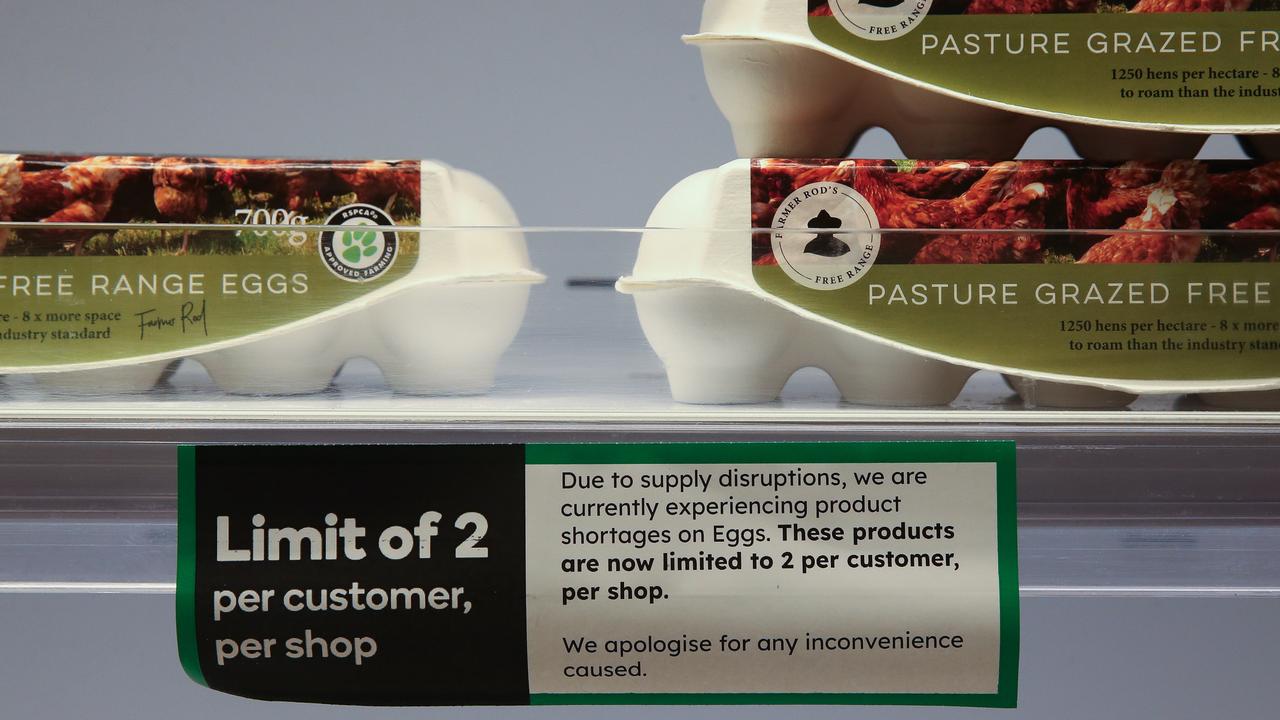
READING LEVELS: GREEN
If you’ve been helping your parents with the weekly shop recently, you may have noticed that the egg fridge is looking very bare and the prices have spiked – so what’s going on?
Australia is experiencing an egg shortage as the industry tries to bounce back from bird flu* outbreaks. Combined with high demand and the phase-out of caged eggs*, the country is currently experiencing supply and demand problems that are directly affecting households and businesses.
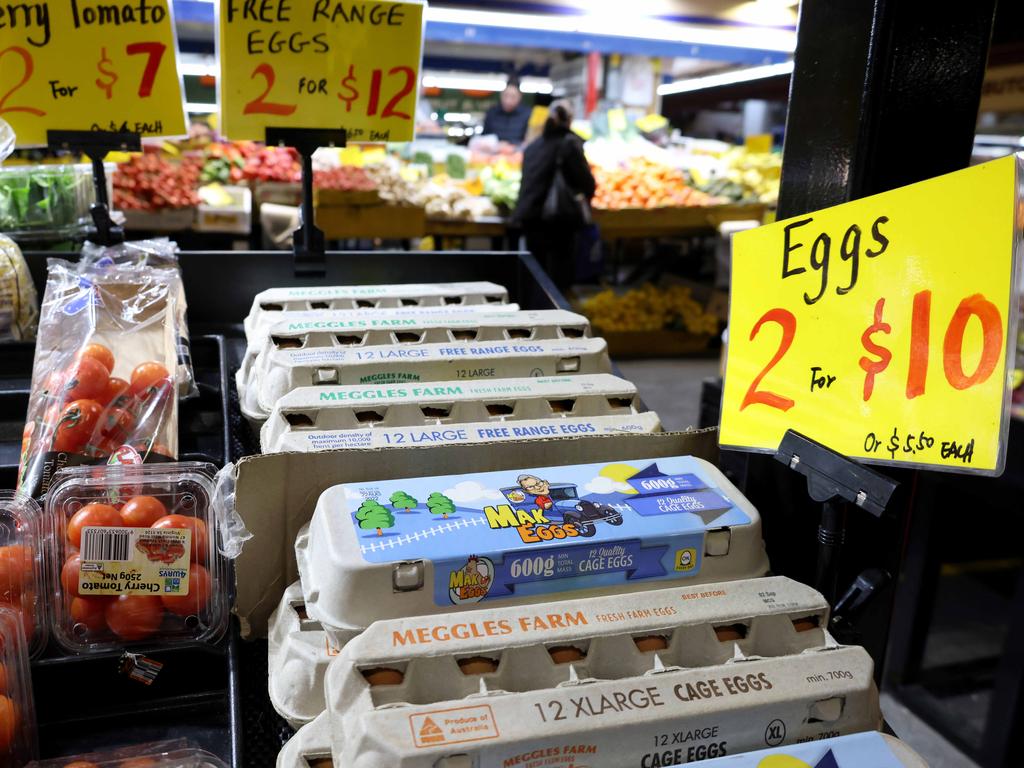
WHY IS THERE AN EGG SHORTAGE?
Some 2.4 million laying hens have been culled* in an attempt to control avian* influenza outbreaks in the past year – that’s more than 10 per cent of the national flock.
Australia, so far, has managed to dodge the worst strain, which is ravaging* other countries. The US is experiencing one of its worst ever avian influenza outbreaks – tens of millions of poultry birds have died and almost 1000 herds of dairy cattle have been infected.
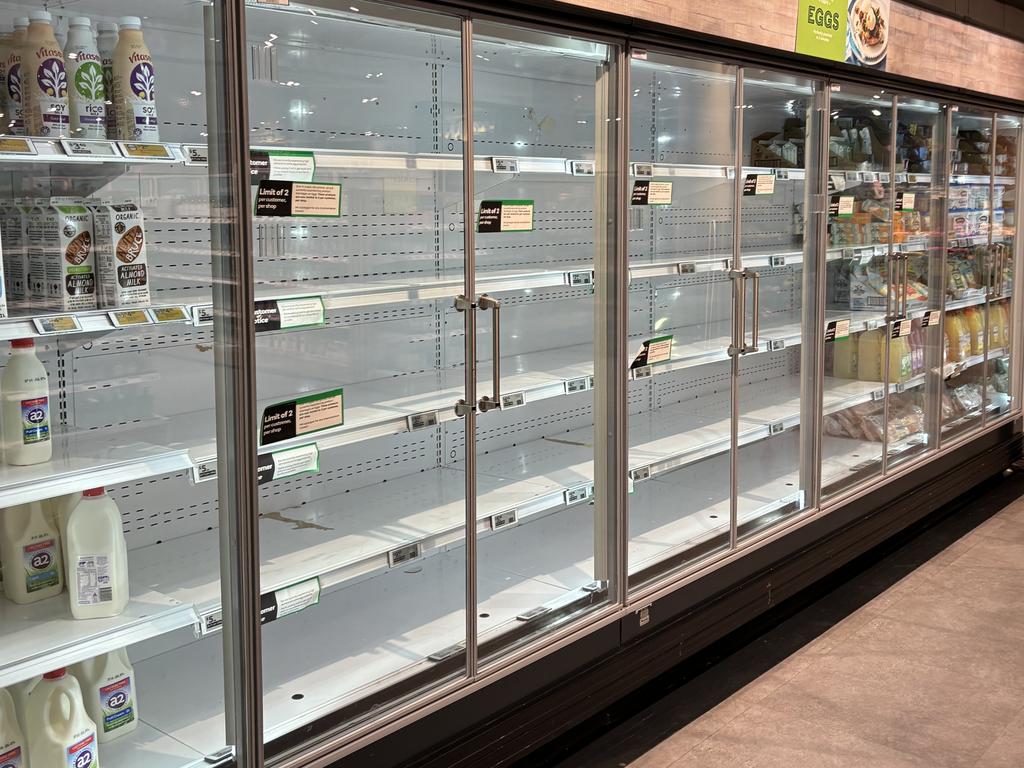
WHY ARE EGGS SO EXPENSIVE?
With fewer egg-producing hens, the volume of production is down. And this squeeze on supply is pushing up demand and making eggs more expensive. The last quarter of 2024 saw prices go up 11.2 per cent, according to the Australian Bureau of Statistics.
It’s also thought that more people are turning to eggs as a cheaper cost-of-living measure, so that may also contribute to demand.
In addition, many farms are now in the middle of transitioning from caged-egg production to barn laid or free-range, as part of the government’s promise to ban all battery cages* by 2036. And this transition is further exacerbating* production issues.
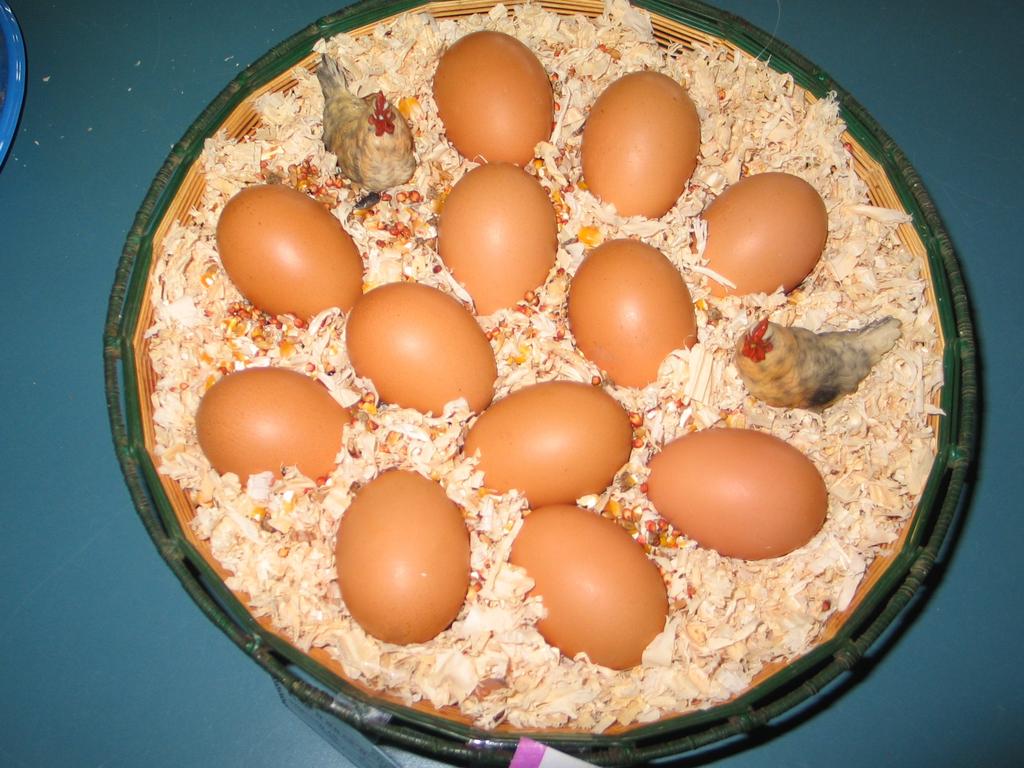
WHEN WILL MORE EGGS BE AVAILABLE?
Over the next six months, we should start to see a return to normal egg supplies, according to the industry peak body, Egg Farmers of Australia.
But other reports suggest that shortages could continue for at least another three years, as it will take time for the industry to get back on track.
Farmers have to wear 20 per cent of outbreak costs through levies*, regardless of whether their property experienced an outbreak or not. They’re often then forced to pass on these costs to consumers.
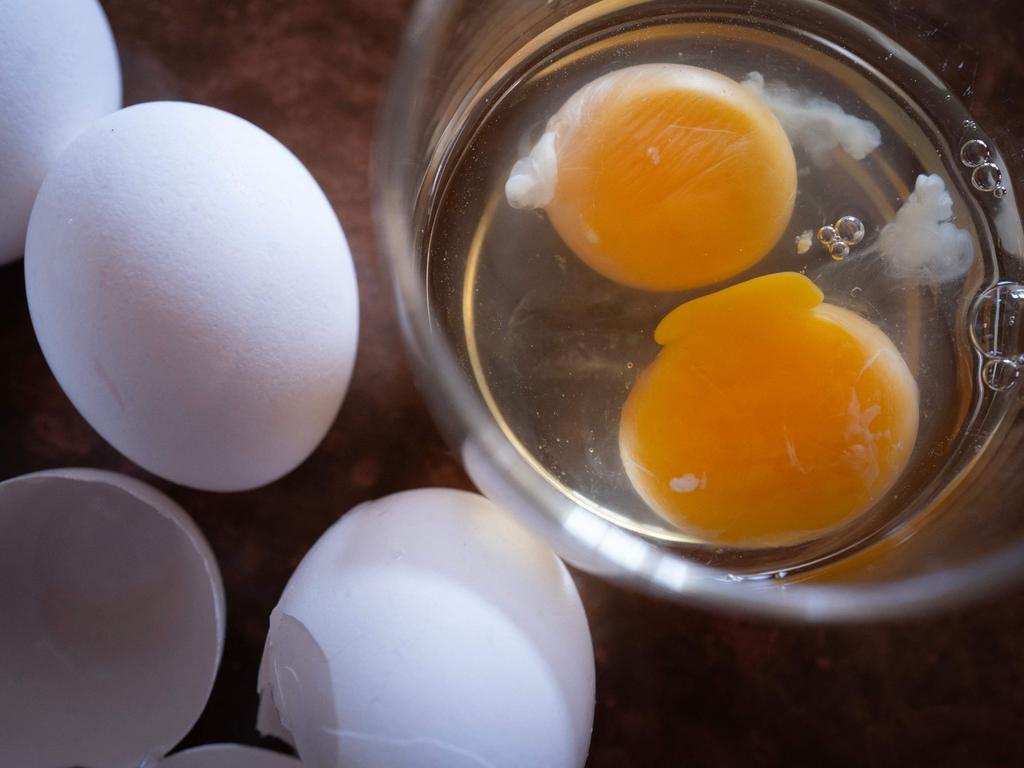
WHAT CAN FAMILIES SUBSTITUTE FOR EGGS?
While we wait out the shortage, it’s a good time for mums and dads to give some egg substitutes a try.
It depends on what your family is cooking as to which ingredient will work best for texture and flavour.
Expect some trial and error – and your personal tastes will always play a part. If you have any vegan* friends at school, they may well have some great tips to share, including their own favourite recipes and egg-free products.
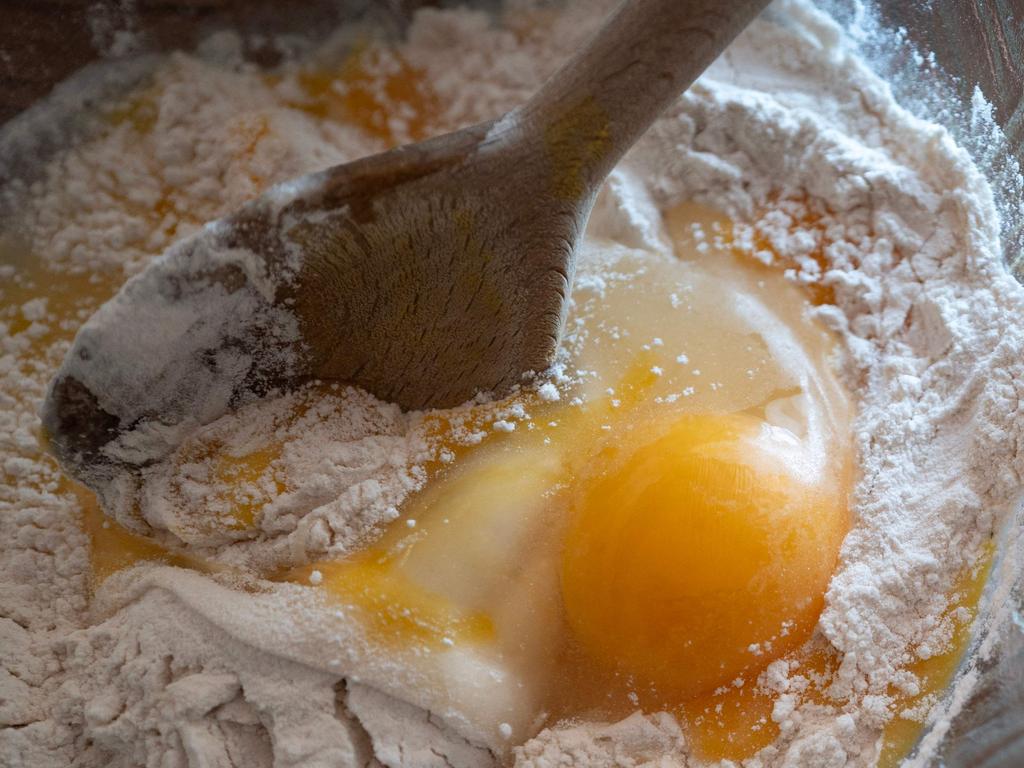
Everyone loves baking – but it may surprise you to learn that there are many different egg-free alternatives you can try at home instead of using eggs. They include:
- ground flaxseed
- aquafaba (the liquid in a can of chickpeas or other legumes)
- baking powder mixed with vegetable oil and water
- yoghurt
- silken tofu
- mashed banana
The Delicious team of expert foodies successfully road-tested ground flaxseed, aquafaba and baking powder/vegetable oil/water in their most popular banana bread recipe.
And if you’re really craving your favourite scrambled eggs before Saturday or Sunday sports – or another egg-cellent breakfast – firm tofu, chickpea flour or vegan egg replacer could get you over the try line.
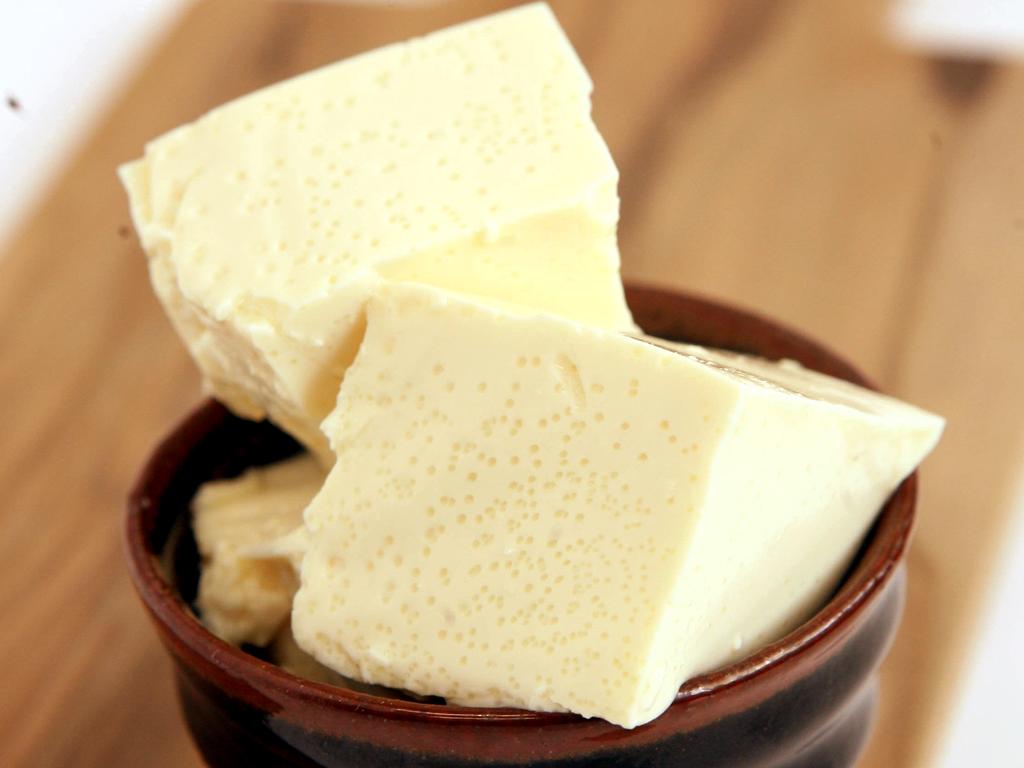
POLL
GLOSSARY
- bird flu: a highly contagious viral disease that affects both domestic and wild birds
- caged-eggs: produced from hens housed in cages inside large, climate-controlled sheds
- culled: killed them in order to reduce or limit their number or reduce the spread of illness
- avian: a bird or relating to birds
- ravaging: bringing destruction, causing great damage to something
- battery cages: according to the RSCPA, these cages are made completely out of wire on all six sides, which means that the hens are permanently standing on wire
- exacerbating: to make something that is already bad even worse
- levies: fees, taxes, charges, tariffs, sums of money payable to the government
- vegan: someone who does not eat or use any animal products
EXTRA READING
Bird flu hits more Aussie farms
Why washed up birds are a worry
Giant egg has another egg inside
QUICK QUIZ
- How many laying hens have been culled in Australia in the past year?
- The last quarter of 2024 saw prices go up by what percentage?
- What are at least three alternative ingredients to eggs in baking recipes?
- What percentage of outbreak costs do farmers have to wear?
- Are farmers exempt from paying those levies if they didn’t have an outbreak?
LISTEN TO THIS STORY
CLASSROOM ACTIVITIES
1. Help shoppers!
Create a poster. Your poster will be put up in supermarkets. The purpose of your poster is to help shoppers understand why there is an egg shortage.
Time: allow at least 40 minutes to complete this activity
Curriculum Links: English, Food Technology
2. Extension
Why are eggs an important ingredient in many baking recipes? Brainstorm some ideas and write them down. Then use your research skills to check your answers and add to your brainstorm. Use the information to create an information diagram about eggs.
Time: allow at least 30 minutes to complete this activity
Curriculum Links: English, Science, Food Technology
VCOP ACTIVITY
I spy nouns
Nouns are places, names (of people and objects), and time (months or days of the week).
How many nouns can you find in the article?
Can you sort them into places, names and time?
Pick three nouns and add an adjective (describing word) to the nouns.

